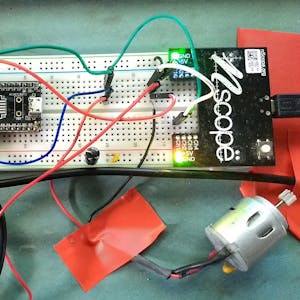"Sensor Manufacturing and Process Control" is a comprehensive course focusing on sensor signal characterization, manufacturing methods, and PID control. The course delves into sensor calibration, electro-mechanical and micro-machined sensor manufacturing, and advanced sensors. Through hands-on lab experiments, students will gain practical knowledge in tuning PID control loops and accessing PID control functions for motor control applications. The course also explores plant-wide controllers and predictive machine maintenance, providing a holistic understanding of process control. Participants will learn about digital protocols, MEMS construction, and sensor reliability and testing, equipping them with essential skills for the industry.
Certificate Available ✔
Get Started / More Info
The course modules cover a range of topics, including process control, sensor characterization, advanced sensors, sensor manufacturing, and course projects.
Module 1 delves into process control, providing an introduction to the course and reviewing 2nd order transfer functions. It also covers PID control, plant-wide controllers, predictive machine maintenance, and digital protocols.
Module 2 focuses on sensor characterization, exploring linearization, temperature compensation, calibration, and sensor accuracy. Students will engage in a lab on closed-loop motor control to apply their learning.
Module 3 delves into advanced sensors, including radar level sensors, range finders (LIDAR), and medical sensors. This module provides insights into cutting-edge sensor technologies and their applications.
Module 4 concentrates on sensor manufacturing, covering MEMS construction, electrical interconnections, sensor housings, and sensor reliability and testing. Students will gain a deep understanding of the manufacturing processes and techniques involved in sensor production.
Module 5 involves course projects based on the videos in the previous modules, allowing students to apply their knowledge and skills in practical settings.
Digital Manufacturing & Design Technology explores the impact of digital advances on manufacturing, covering Industry 4.0, digital thread, IoT, and big data....
Quantum Mechanics for Engineers offers essential understanding of quantum mechanics tailored for engineers, providing a firm foundation for advanced engineering...
Electrodynamics: Electric and Magnetic Fields offers a comprehensive exploration of magnetostatics, electromotive force, and their practical applications in various...
Introduction to Embedded Systems Software and Development Environments is a hands-on course focusing on ARM based Microcontrollers, software configuration management,...